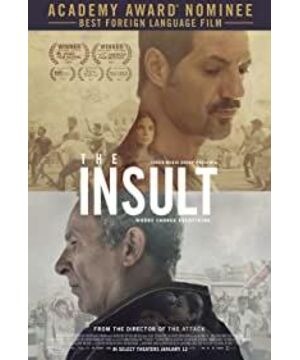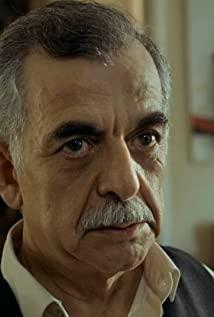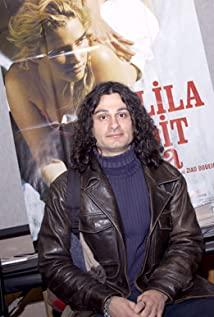The film begins with a quarrel between two men who also live in Lebanon, and ends in a relieved look at each other after their lawsuit is over. What is certain is that the complex historical background in the film is a potential incentive for the disputes between men of different beliefs from two different ethnic groups. The whole film tells a story about "reconciliation", and it can be seen from the opening scene and ending of the film that "reconciliation" is obviously finally reached. When watching the first half of the movie, I secretly felt that the Lebanese man named Tony was unreasonable. His two ribs were broken after he made a rude remark. He should suffer the consequences of his own suffering, and when the director played the civil strife in the place where Tony was born with the help of a lawyer In the video, what the director wants to express is already clear. Lebanon, which is usually considered to be the persecutor, has also suffered indelible injuries. The Lebanese people have always been angered and traumatized. These are just buried by history and time. But as the movie says, the truth deserves attention, no one has the privilege of suffering, and as a moviegoer, I am no longer just sympathetic for whom I am outraged. It is not only individuals who are confronted in court, but also two groups who have experienced different histories. Reconciliation may be a good medicine for confrontation. In the film, there is another point that intrigues me, or makes me feel very emotional. That is: why the anger of the group is so easily instigated, and whether politicians or people with other purposes will use the incitement of the masses to achieve some personal goals. In the film, due to the outflow of the court confrontation video and the swarming attention and real-time reports of the media, the collective emotions of two different interests were ignited and even expanded. The demonstrations, riots, and bloody conflicts caused social instability, which reminded me of some social conflicts. For example, the Cultural Revolution in the 1980s in China... The power of the group is powerful, and the power of the group after being instigated is terrible. With an overwhelming advantage, there is no more fear, and violence has become a weapon of bragging rights. Power is nothing but a must, anger suppresses rational thinking, and people who have lost their reason are easily led by the nose and become puppets. This also reminds me of the current social hotspot: the new coronavirus pneumonia, rumors are everywhere. I am also amazed that some excellent classmates and friends around me have casually echoed some speeches on the Internet, scolded the government indiscriminately with anger, and then "cited scriptures" and counted "historical relics" in an attempt to expand again. The scope of incitement, not to mention digressing from the topic of discussion, this naive behavior not only fails to solve the actual behavior, but also creates new problems. I think that we should be vigilant and objectively analyze inflammatory remarks. Furthermore, we should not forget to be grateful if we can live happily. I can think that these may also be far from the interpretation of the film itself. This movie is undoubtedly a movie worth watching again. After gaining a better understanding of the history and culture of the Middle East, I think I will watch it again.
View more about The Insult reviews











